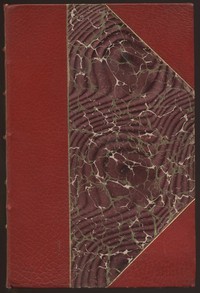Old Mortality, Volume 2. by Walter Scott (most important books to read txt) 📗

- Author: Walter Scott
Book online «Old Mortality, Volume 2. by Walter Scott (most important books to read txt) 📗». Author Walter Scott
"Be assured, Jenny," said Morton, observing that she hesitated, "that you will best serve your mistress by dealing sincerely with me."
"Weel, then, ye maun ken we're starving, as I said before, and have been mair days than ane; and the Major has sworn that he expects relief daily, and that he will not gie ower the house to the enemy till we have eaten up his auld boots,—and they are unco thick in the soles, as ye may weel mind, forby being teugh in the upper-leather. The dragoons, again, they think they will be forced to gie up at last, and they canna bide hunger weel, after the life they led at free quarters for this while bypast; and since Lord Evandale's taen, there's nae guiding them; and Inglis says he'll gie up the garrison to the whigs, and the Major and the leddies into the bargain, if they will but let the troopers gang free themsells."
"Scoundrels!" said Morton; "why do they not make terms for all in the Castle?"
"They are fear'd for denial o' quarter to themsells, having dune sae muckle mischief through the country; and Burley has hanged ane or twa o' them already—sae they want to draw their ain necks out o' the collar at hazard o' honest folk's."
"And you were sent," continued Morton, "to carry to Lord Evandale the unpleasant news of the men's mutiny?"
"Just e'en sae," said Jenny; "Tam Halliday took the rue, and tauld me a' about it, and gat me out o' the Castle to tell Lord Evandale, if possibly I could win at him."
"But how can he help you?" said Morton; "he is a prisoner."
"Well-a-day, ay," answered the afflicted damsel; "but maybe he could mak fair terms for us—or, maybe, he could gie us some good advice—or, maybe, he might send his orders to the dragoons to be civil—or"—
"Or, maybe," said Morton, "you were to try if it were possible to set him at liberty?"
"If it were sae," answered Jenny with spirit, "it wadna be the first time I hae done my best to serve a friend in captivity."
"True, Jenny," replied Morton, "I were most ungrateful to forget it. But here comes Cuddie with refreshments—I will go and do your errand to Lord Evandale, while you take some food and wine."
"It willna be amiss ye should ken," said Cuddie to his master, "that this Jenny—this Mrs Dennison, was trying to cuittle favour wi' Tam Rand, the miller's man, to win into Lord Evandale's room without ony body kennin'. She wasna thinking, the gipsy, that I was at her elbow."
"And an unco fright ye gae me when ye cam ahint and took a grip o' me," said Jenny, giving him a sly twitch with her finger and her thumb—"if ye hadna been an auld acquaintance, ye daft gomeril"—
Cuddie, somewhat relenting, grinned a smile on his artful mistress, while Morton wrapped himself up in his cloak, took his sword under his arm, and went straight to the place of the young nobleman's confinement. He asked the sentinels if any thing extraordinary had occurred.
"Nothing worth notice," they said, "excepting the lass that Cuddie took up, and two couriers that Captain Balfour had dispatched, one to the Reverend Ephraim Macbriar, another to Kettledrummle," both of whom were beating the drum ecclesiastic in different towns between the position of Burley and the head-quarters of the main army near Hamilton.
"The purpose, I presume," said Morton, with an affectation of indifference, "was to call them hither."
"So I understand," answered the sentinel, who had spoke with the messengers.
He is summoning a triumphant majority of the council, thought Morton to himself, for the purpose of sanctioning whatever action of atrocity he may determine upon, and thwarting opposition by authority. I must be speedy, or I shall lose my opportunity.
When he entered the place of Lord Evandale's confinement, he found him ironed, and reclining on a flock bed in the wretched garret of a miserable cottage. He was either in a slumber, or in deep meditation, when Morton entered, and turned on him, when aroused, a countenance so much reduced by loss of blood, want of sleep, and scarcity of food, that no one could have recognised in it the gallant soldier who had behaved with so much spirit at the skirmish of Loudon-hill. He displayed some surprise at the sudden entrance of Morton.
"I am sorry to see you thus, my lord," said that youthful leader.
"I have heard you are an admirer of poetry," answered the prisoner; "in that case, Mr Morton, you may remember these lines,—
'Stone walls do not a prison make, Or iron bars a cage; A free and quiet mind can take These for a hermitage.'But, were my imprisonment less endurable, I am given to expect to-morrow a total enfranchisement."
"By death?" said Morton.
"Surely," answered Lord Evandale; "I have no other prospect. Your comrade, Burley, has already dipped his hand in the blood of men whose meanness of rank and obscurity of extraction might have saved them. I cannot boast such a shield from his vengeance, and I expect to meet its extremity."
"But Major Bellenden," said Morton, "may surrender, in order to preserve your life."
"Never, while there is one man to defend the battlement, and that man has one crust to eat. I know his gallant resolution, and grieved should I be if he changed it for my sake."
Morton hastened to acquaint him with the mutiny among the dragoons, and their resolution to surrender the Castle, and put the ladies of the family, as well as the Major, into the hands of the enemy. Lord Evandale seemed at first surprised, and something incredulous, but immediately afterwards deeply affected.
"What is to be done?" he said—"How is this misfortune to be averted?"
"Hear me, my lord," said Morton. "I believe you may not be unwilling to bear the olive branch between our master the King, and that part of his subjects which is now in arms, not from choice, but necessity."
"You construe me but justly," said Lord Evandale; "but to what does this tend?"
"Permit me, my lord"—continued Morton. "I will set you at liberty upon parole; nay, you may return to the Castle, and shall have a safe conduct for the ladies, the Major, and all who leave it, on condition of its instant surrender. In contributing to bring this about you will only submit to circumstances; for, with a mutiny in the garrison, and without provisions, it will be found impossible to defend the place twenty-four hours longer. Those, therefore, who refuse to accompany your lordship, must take their fate. You and your followers shall have a free pass to Edinburgh, or where-ever the Duke of Monmouth may be. In return for your liberty, we hope that you will recommend to the notice of his Grace, as Lieutenant-General of Scotland, this humble petition and remonstrance, containing the grievances which have occasioned this insurrection, a redress of which being granted, I will answer with my head, that the great body of the insurgents will lay down their arms."
Lord Evandale read over the paper with attention.
"Mr Morton," he said, "in my simple judgment, I see little objection that can be made to the measure here recommended; nay, farther, I believe, in many respects, they may meet the private sentiments of the Duke of Monmouth: and yet, to deal frankly with you, I have no hopes of their being granted, unless, in the first place, you were to lay down your arms."
"The doing so," answered Morton, "would be virtually conceding that we had no right to take them up; and that, for one, I will never agree to."
"Perhaps it is hardly to be expected you should," said Lord Evandale; "and yet on that point I am certain the negotiations will be wrecked. I am willing, however, having frankly told you my opinion, to do all in my power to bring about a reconciliation."
"It is all we can wish or expect," replied Morton; "the issue is in God's hands, who disposes the hearts of princes.—You accept, then, the safe conduct?"
"Certainly," answered Lord Evandale; "and if I do not enlarge upon the obligation incurred by your having saved my life a second time, believe that I do not feel it the less."
"And the garrison of Tillietudlem?" said Morton.
"Shall be withdrawn as you propose," answered the young nobleman. "I am sensible the Major will be unable to bring the mutineers to reason; and I tremble to think of the consequences, should the ladies and the brave old man be delivered up to this bloodthirsty ruffian, Burley."
"You are in that case free," said Morton. "Prepare to mount on horseback; a few men whom I can trust shall attend you till you are in safety from our parties."
Leaving Lord Evandale in great surprise and joy at this unexpected deliverance, Morton hastened to get a few chosen men under arms and on horseback, each rider holding the rein of a spare horse.





Comments (0)